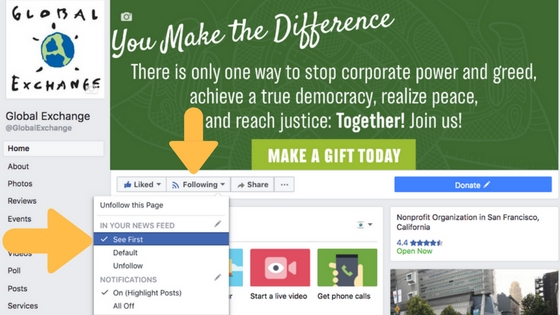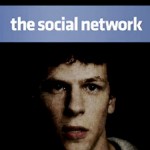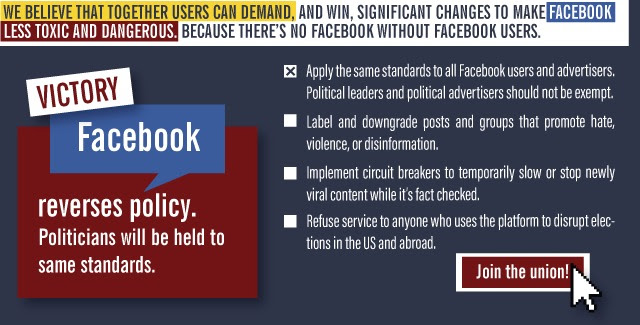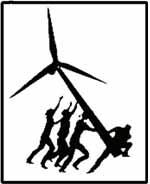Thanks to constant pressure from social media accountability activists, Facebook employees, corporations that participated in the #StopHateforProfit boycott, and Fed-up Facebook users like you:
Yes, Facebook left itself loopholes that need to be closed. Yes, Trump should be banned from Facebook permanently. So, we need to keep fighting. But we also need to acknowledge that what we’re doing is working and take a moment to recognize our success! What’s next? We need to keep the pressure on! Facebook should create a “circuit breaker” to help prevent dangerous disinformation and incitements to violence from ever reaching a mass audience. Circuit breakers are used in the stock exchange when there’s a dramatic drop, to pause trading and allow traders to assimilate new information and make better-informed choices. Social media circuit breaking would work the same way, pausing the most high-volume posts for fact-checking before they reach millions of people. Learn more here and sign the petition if you haven’t already: Turn off hate and lies! We believe that together users can demand, and win, significant changes to make Facebook less toxic and dangerous. Because there’s no Facebook without Facebook users. |
Please take a listen to this special webcast about protecting election integrity, voting rights, and democracy in the age of Facebook. Our guests discussed what they see as the most perilous threats to democracy that are being promulgated on Facebook and what can be done about them—through government regulation, legal efforts, changes to company policies, and pro-democracy activism.
– Ángel Díaz is counsel in the Liberty & National Security Program of the Brennan Center for Justice. His work focuses on the intersection of technology with civil rights and civil liberties.
– Yaël Eisenstat is the former Global Head of Elections Integrity Operations for political advertising at Facebook. She is a key voice and public advocate for transparency and accountability in tech.
– Myaisha Hayes is the Campaign Strategies Director at MediaJustice, where she oversees the launch of campaigns such as #NoDigitalPrisons and #ProtectBlackDissent.
– Jesse Littlewood is the Vice President of Campaigns at Common Cause, which is training election protection social media monitors to combat cyber-suppression in their communities.
Sponsored by the Protest Facebook Coalition, Media Alliance, and Global Exchange.
Earlier this month, Facebook began introducing changes that will make it harder for you to see Global Exchange’s posts highlighting news and analysis on international human rights.
Good news, it’s easy to get us back:
1. Go to our Facebook page
2. Make sure to like us if you don’t already
3. Click the “Follow” button (if you’re already following us it will say “Following”) and choose “See First” from the dropdown menu.

And that’s all! Now Global Exchange posts will always be at the top of your News Feed, so you’ll never miss important human rights news and analysis.
You can use the “See First” setting for as many pages as you want.
 This past Friday, after overcoming my hesitancy to let Facebook infiltrate another aspect of my life, I gave in and watched “The Social Network.” I’m going to go ahead and say it but, this movie is definitely a defining moment for the millennial generation, our generation. It is proof that we are about to be stepping into the primes of our existence in the U.S. and worldwide. The fact that the largest grossing movie this past weekend is based on a dot com idea hatched five years ago in a Harvard dorm room, is proof that our ideas are starting to be the cultural norm. If you are not ready for that realization, consider this a wake-up call. Mark Zuckerberg (the creator of Facebook) is 26, making him 20 or 21 when he created Facebook.
This past Friday, after overcoming my hesitancy to let Facebook infiltrate another aspect of my life, I gave in and watched “The Social Network.” I’m going to go ahead and say it but, this movie is definitely a defining moment for the millennial generation, our generation. It is proof that we are about to be stepping into the primes of our existence in the U.S. and worldwide. The fact that the largest grossing movie this past weekend is based on a dot com idea hatched five years ago in a Harvard dorm room, is proof that our ideas are starting to be the cultural norm. If you are not ready for that realization, consider this a wake-up call. Mark Zuckerberg (the creator of Facebook) is 26, making him 20 or 21 when he created Facebook.
Getting into the movie, I realized that there are some clear take home messages we can apply to the Green Economy movement. The best part about the movie is the divide between the guys who create the Harvard Connection and Facebook creator, Mark Zuckerberg. In the movie, shortly after Zuckerberg releases his pre-curser to Facebook, called ‘Facemash’ he is approached by two rich and privileged brothers, The Winklevoss twins. These two have everything going for them, including captains and Olympians in training for the Harvard row team, hold a 3.9 average and belong to the most prestigious & exclusive social club at Harvard. However, this is where the movie gets interesting and the story of Facebook becomes a defining moment for our generation.
Frank Chi recently touched on this in his Huffington Post piece,
“The Social Network is about social upheaval in the digital age. It’s about the ability of a new media class to deconstruct centuries worth of privilege and access that would’ve won in every other generation but now.
The Winkelvoss twins had an idea. But they didn’t have the intellectual capacity to execute that idea. They fell back on the assumption they can just buy off a “code monkey” with the trappings of the social structure that has defined paths to power since social structures existed.
In the new media age, the communications industry will be defined by people who not only have an idea, but the ability to execute them.
Mark Zuckerberg is a visionary and a coder. The Winklevoss twins? They’re just wannabe middle men. That’s what makes Zuckerberg so dangerous to the established media industry – an industry full of old middle men who don’t have a clue on how to execute the ideas they talk about. … It’s the ability to have an idea, say it, execute it immediately, and change the way we think – big or small.”
If you ask me, I see nothing but parallels to the Green Economy movement. We currently stand at the threshold of a decentralized, clean energy revolution that could blow the doors off of the old energy economy. This old energy economy is controlled by arcane government policies and protections for utility companies, oil drillers, the coal industry, and a host of other outdated & irrelevant technology for the 21st century. However, the mainstream strategy of those of us working for the green economy is to try to create new laws and regulations, lobbying congress and pushing for a silver bullet climate bill to save us all and create magical green jobs.
As the movie shows us, we can’t just advocate for a new technological age we are entering – if we are to be successful we have to have both big ideas but also have the technical know how of how to make those ideas real.
After seeing the movie I immediately started thinking; why should we expect the same outdated utility and energy companies to bring forth the revolutionary idea that could change our energy system forever? Is policy really the best mechanism to create a revolution in energy in the United States and worldwide?
It also points out glaring gaps in the clean energy movement right now. Where are the engineers that also understand the social fabric of our society and can bring a game changing idea to fruition? We know we have all the carbon-free, renewable energy available to us right now. But we have not learned how to harness the individual human’s ability to participate in a new system. Should we be spending our every last waking hour and precious monetary resources on lobbying our Senators? Maybe we can render their opinion irrelevant. Consider Facebook now has 500 million users, is world-wide and was started for less than $1000 by basically 1 person. Let’s do the same thing for the Green Economy that Facebook did for social networking, we need to make it accessible for every American, and every person on the planet. Don’t say it isn’t possible. Facebook proves otherwise. We can’t depend on the old way of doing things when our generation has the ideas and the ability to get the tools to make those ideas real.
With this realization, I enrolled in Oregon Institute of Technology’s Renewable Energy Engineering program and am taking my first class online starting this week.


